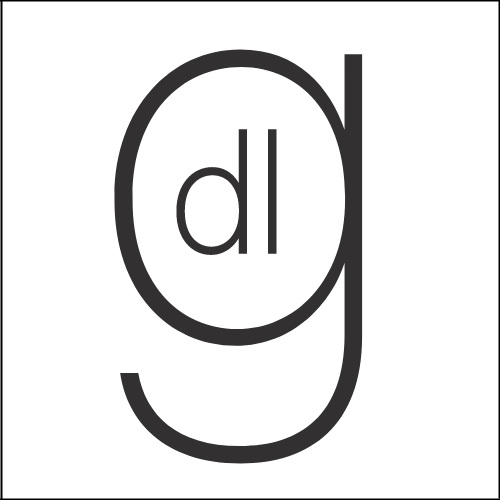ANSAN, South Korea (MAY 16, 2019) – Seoul Semiconductor Co., Ltd. (KOSDAQ 046890), a leading global innovator of LED products and technology, announced that its SunLike Series natural spectrum LEDs have been identified as a key light source for promoting human well-being, based on the results of a recent comprehensive sleep study conducted by scientists at the University of Basel.
Seoul Semiconductor developed SunLike Series natural spectrum LEDs in collaboration with Toshiba Materials’ TRI-R spectrum technology in 2017 as the first LED light source to closely match the spectrum of natural sunlight. The two companies have since promoted this natural sunlight spectrum technology through its favorable effects on human well-being and sleep as a key value in the evolution of lighting.
There has been an increase in research activity on the relationship between light and human bio-function, including a recent scientific study focusing on the effects of light spectrum on sleep quality, visual comfort, well-being and daytime alertness conducted by Prof. Christian Cajochen and his team at the University of Basel in Switzerland, entitled: “Effect of Daylight LED on Visual Comfort, Melatonin, Mood, Waking Performance, and Sleep,” published in the Journal of Lighting and Research Technology on March 24, 2019.
It is well established that light is one of the strongest control factors for human circadian rhythms, such as the secretion of the sleep-promoting hormone melatonin. Thus, optimal lighting conditions during daytime hours are crucial to prevent circadian rhythm disturbances which can lead to sleep disorders and other life-style related diseases. Over the past ten years, there have been related scientific studies in the fields of sleep, chronobiology, physiology, as well as the impact of light quality in elderly care.
According to Prof. Cajochen’s research, LED light sources with the same measured correlated color temperature (CCT) and intensity, but different spectral output, can have different effects on human behavior and physiology. LED light sources with a spectrum close to natural sunlight produced better visual comfort, more alertness, and happier moods in the morning and evening among the test participants, compared to those exposed to conventional spectrum LEDs. The research tested subjects’ visual comfort, circadian physiology, daytime alertness, mood, cognitive performance, and sleep after being exposed to both conventional LED light, and natural spectrum LED light for 49 hours in a laboratory setting.
Quoting from the paper: “We have evidence that a daylight [natural spectrum] LED solution has beneficial effects on visual comfort, daytime alertness, mood, and sleep intensity in healthy volunteers. Delta EEG activity (0.75–4.5Hz) was significantly higher after daylight-LED than conventional-LED exposure during the post-light exposure night.” [NOTE: Delta EEG (electroencephalogram) measurements record delta waves, the brain waves associated with Stage 3 non-rapid eye movement (NREM) sleep, or “slow-wave sleep” (SWS), and aid in characterizing the depth of sleep.]
By providing the same spectrum as sunlight in the visible light range, SunLike Series natural spectrum LEDs deliver benefits to human well-being, consistent with the mechanisms of vision that impact both image forming and non-image forming aspects of the eye, as well as the control of circadian rhythms. While the qualities of artificial light have been described primarily with color and intensity thus far, SunLike Series natural spectrum LEDs have introduced light spectrum as another important factor in determining overall light quality.
“This research conducted by the University of Basel suggests another important aspect to the evolving direction of artificial light over the past eighty years. In addition to the properties of energy efficiency and long life, we have added the factor of ‘human well-being’ to modern LED light sources,” said Nam Ki-bum, sales executive vice-president of Seoul Semiconductor. “As the world’s first mass-produced LED devices to achieve natural sunlight quality, SunLike Series LEDs are advancing lighting technology in this important area as we continue to respond to market needs from our customers’ lighting applications.”
Lighting Research & Technology
About the University of Basel
The University of Basel has an international reputation for outstanding achievements in research and teaching. Founded in 1460, the University of Basel is the oldest university in Switzerland. The university has positioned itself amidst the international competition in the form of five strategic focal areas: Life Sciences, Visual Studies, Nanosciences, Sustainability & Energy Research, and European & Global Studies.
About Seoul Semiconductor
Seoul Semiconductor develops and commercializes LEDs for automotive, general illumination, specialty lighting, and backlighting markets. As the second-largest LED manufacturer globally excluding the captive market, Seoul Semiconductor holds more than 14,000 patents, offers a wide range of technologies, and mass produces innovative LED products such as SunLike – delivering the world’s best light quality in a next-generation LED enabling human-centric lighting optimized for circadian rhythms; WICOP – a simpler structured package-free LED which provides market leading color uniformity and cost savings at the fixture level, providing high lumen density and design flexibility; NanoDriver Series – the world’s smallest 24W DC LED drivers; Acrich, the world’s first high-voltage AC-driven LED technology developed in 2005, including all AC LED-related technologies from chip to module and circuit fabrication, and nPola, a new LED product based on GaN-substrate technology that achieves more than ten times the output of conventional LEDs. UCD constitutes a high color gamut display which delivers more than 90% NTSC. For more information, please visit www.seoulsemicon.com/en.
Contacts:
Seoul Semiconductor Inc.
North America
Andrew Smith
Tel: +1 (901) 831-6614
Email: [email protected]
Asia and Europe
Jeong-hee Kim
Tel: +82-70-4391-8311
Email: [email protected]




